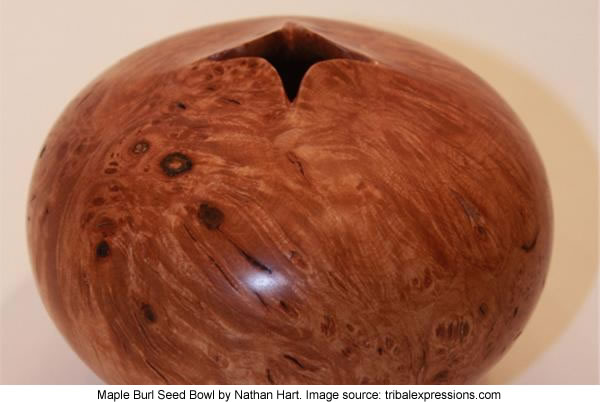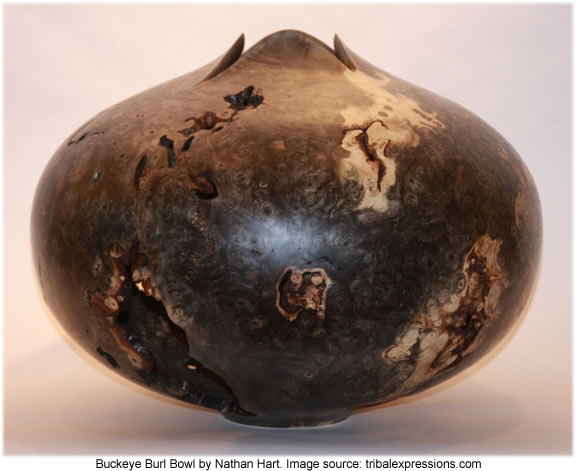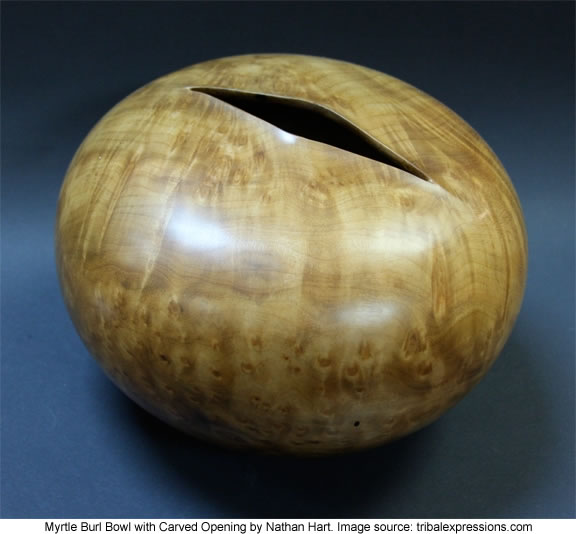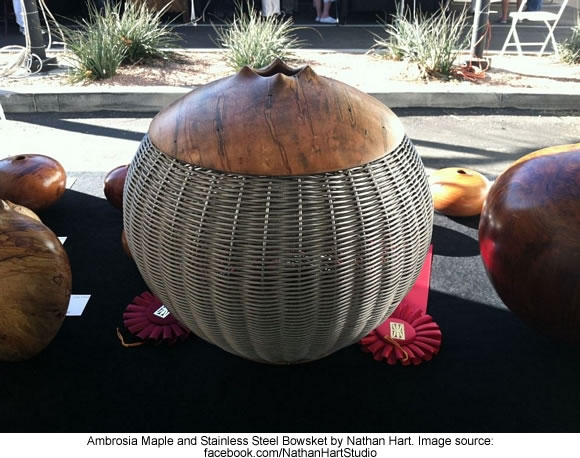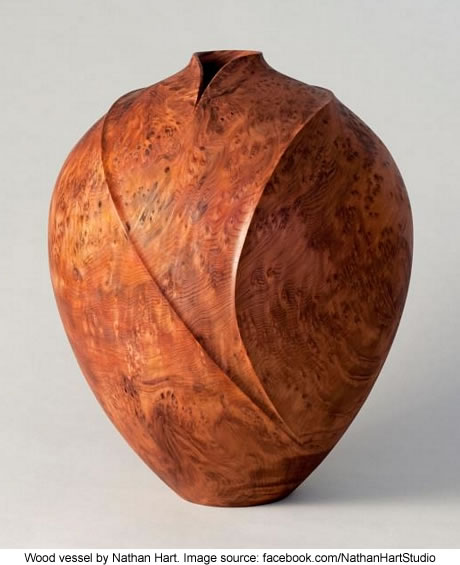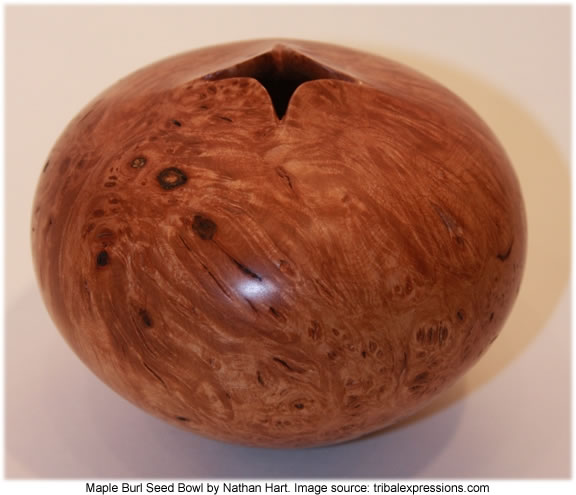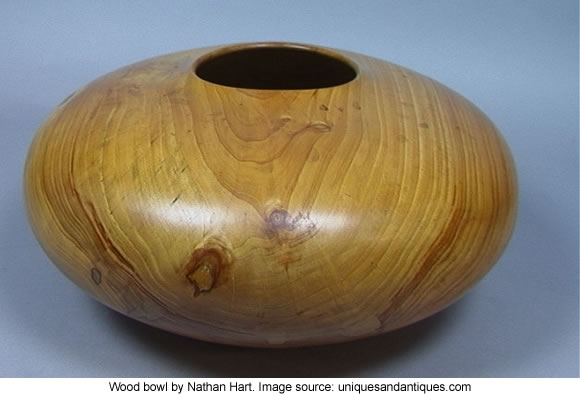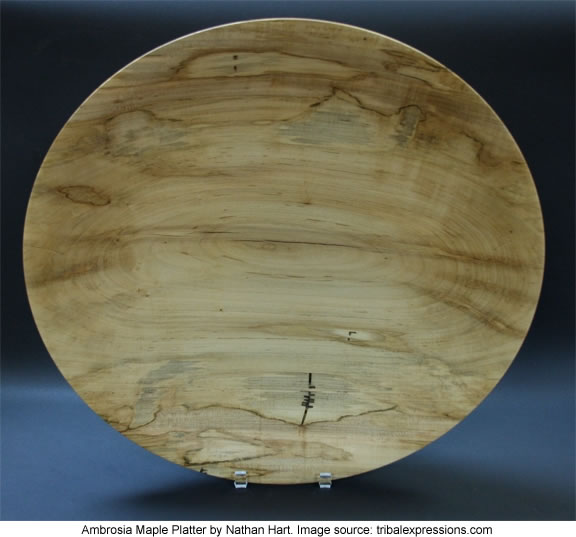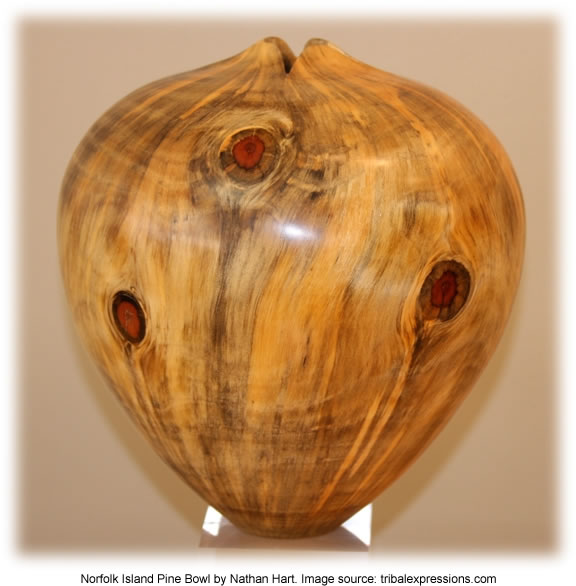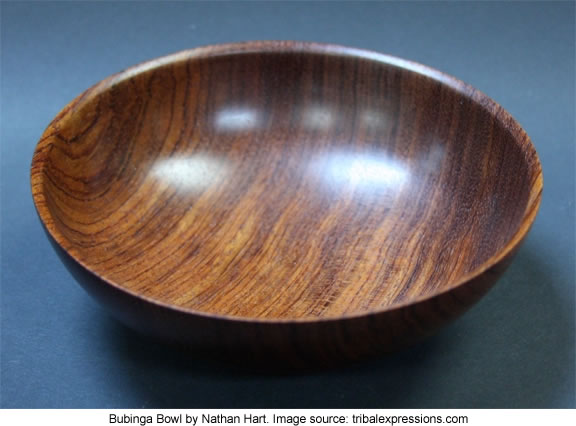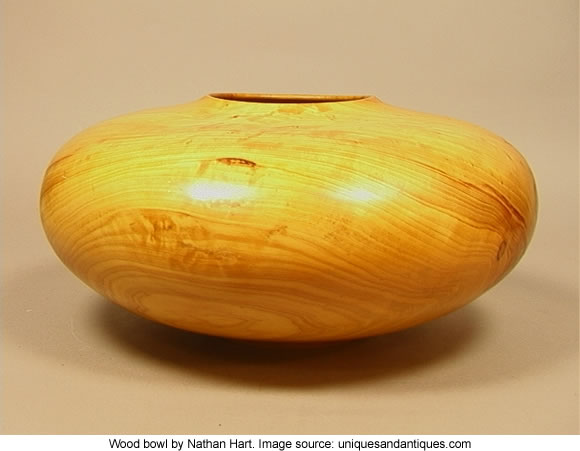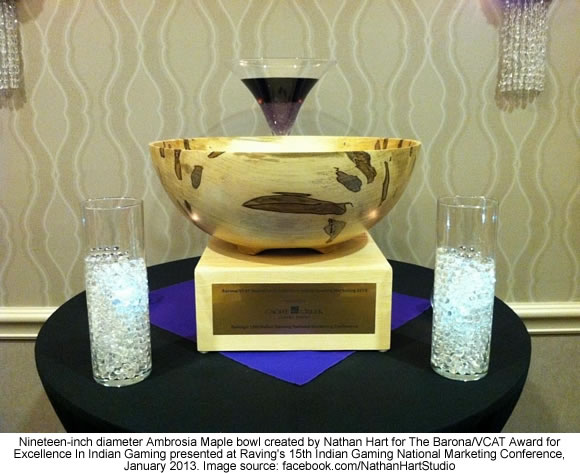 |
Canku Ota
|
 |
|
(Many Paths)
|
||
|
An Online Newsletter
Celebrating Native America
|
||
|
December 2013 - Volume
11 Number 12
|
||
|
|
||
|
It's Not Firewood!
Stunning Bowls by Cheyenne Wood Turner
|
||
|
by Lee Allen _ Indian
Country Today Media Metwork
|
||
|
"No, it's not firewood," says Nathan Hart of the big log pile in his Oklahoma City back yard. What the loosely-stacked pieces of pecan, hackberry, walnut, and oak could be are masterpieces in the making by the Cheyenne wood turner, who relishes making something beautiful and polished from conspicuously raw material. "Nature provides a fantastic showcase of different types of wood with a variety of interesting grain patterns. What I like to do is assist in the process of showing off this natural beauty. I get wood and give it new life." Hart does so as a professional Native American wood turner, a hollower of solid logs into sculptural and functional pieces like bowls, platters or his specialty of vessels with small mouths (pots ranging in size from 2 to 20 inches) that mimic ceramic pots.
"What I make is really more for the eye, more decorative than functional and utilitarian, although I still do traditional pieces like feast bowls." Ever the creative artist, Hart has developed what he calls a Bowsket, a half bowl and half basket combination of wood and stainless steel basketweaving. Growing up in a remote area of Clinton, Oklahoma where the nearest Cheyenne/Arapaho reservation neighbor was a mile away, Hart provided his own outdoor amusement by building structures out of old logs.
"Early on, I had a goal of wanting to design and construct furniture, but couldn't afford the needed equipment. I did get introduced to the turning of wood on a lathe, decided I could do that, and here I am, some 20 years later, still turning timber." While green wood may be easier to cut, it is prone to cracking and splitting, so Hart uses dry wood: Harder to cut, but it won't crack and it's easier to finish. "I gather fallen pecan and hackberry limbs, seal up the ends with paraffin so the moisture is trapped inside, and stack it under my ever- expanding pile of wood shavings for a year or so.
"Pecan normally has a nice rich tan color, but after curing, the wood has a lot of different colorations running through it, changes caused by the moisture bringing about early stage decay. It's a natural pattern that contrasts with the lighter colors of the wood." The 40-ish-year-old woodworker likes to use any burl or knot and spotlight the spalted grain, those unique striated patterns resulting from the moisture trapped inside the wood. "I understand the natural decay timeline for these materials. If I leave the logs too long, they'll be too far gone for me to use, but I've been doing this since 1990 and have come to understand the natural process."
Not that mistakes aren't still made; some of the wood man's projects do take a wrong turn and end up as beautiful kindling. "There are some pieces that have started out as a nice big 12 inch diameter log that I've kept working and working until it ends up as a 3 inch piece. I have a lot of potter friends who like to visit my wood shaving pile to burn in their kiln -- another multi-use example showing reverence for nature by recycling." One distinctive feature of Hart's work is the addition of some unique tribal heritage in the square top of his round bowls. Look down on the work and you'll see the final adornment, a simple motif borrowed from his ancestors like a mountain or a lodge or a morning star design. "A lot of tribes, particularly those from the Plains area, will incorporate a morning star into their work. For me, that design is a sign of renewal that imbues my work with meaning."
Learn more about Nathan Hart at facebook.com/NathanHartStudio.
|
|
|
||
|
|
||
| Canku Ota is a free Newsletter celebrating Native America, its traditions and accomplishments . We do not provide subscriber or visitor names to anyone. Some articles presented in Canku Ota may contain copyright material. We have received appropriate permissions for republishing any articles. Material appearing here is distributed without profit or monetary gain to those who have expressed an interest. This is in accordance with Title 17 U.S.C. Section 107. | ||
|
Canku Ota is a copyright ©
2000 - 2013 of Vicki Williams Barry and Paul Barry.
|
||
 |
 |
|
|
The "Canku
Ota - A Newsletter Celebrating Native America" web site and
its design is the
|
||
|
Copyright ©
1999 - 2013 of Paul C. Barry.
|
||
|
All Rights Reserved.
|
||
